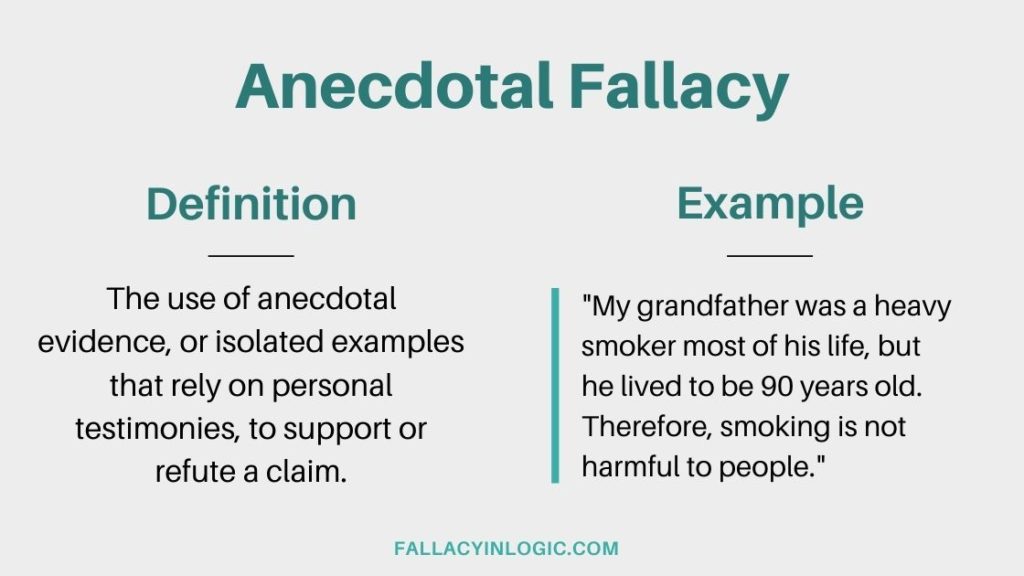
The Anecdotal Fallacy and Case Studies
Science is based on an ever increasing amount of knowledge. Ideas start as hypotheses. After experiments prove their accuracy, they become theories. The more tests confirm the hypothesis, the more likely the theory is correct. If, however, the tests do not support the hypothesis, we change the hypothesis to fit the new facts. There are different types of experiments science uses. We can do the double blind study, the blind study, and the case study.
The most reliable is the double blind study. In it, the participants and the people compiling the results do not know who is in the placebo group and who is not. Similarly in a blind study, the participants still don’t know if they are in the placebo group or not, but the people compiling the results DO. The least reliable study, is the case study. In the case study, we just focus on one person’s experiences.
Here’s why I can’t stand the case study. They don’t mean anything. If we actually gave a fuck about one person’s experiences, we would actually listen to homelesses instead of just giving them money to leave us alone. Yet, every time a politician wants to impress upon us a point, he mentions that one person whose life story backs up the politician. “I met this person in (small town) who had (issues) that I can solve.” Blah blah blah. It’s not a large enough sample group to mean anything.
If you ask one person if you are tall or short, and they say you are tall, that means that 100% of your sample group think you’re tall. If you ask 100 people if you are tall or short, and 99 say you are tall, then 99% of your sample group think you’re tall. While statistically speaking, only 99% of the second study say what 100% of the first study said, the second study carries more weight, because the sample group was larger.
Politicians don’t think that way. They know that people are mostly stupid and emotional. If they can get voters to vote for them with one emotional tale, they’ll take it. It’s the same with religion. Religion operates outside of fact. Thus they use emotion. They always bring up that one person who committed (particular sin) then (found god) and now (has a great life). Big deal. It means nothing. What about all the other people who commit that same sin and don’t find god but still have great lives. Or what about the people that find god but didn’t commit that sin. Or what about the people that committed that same sin, found the same god, but don’t have that great life?
Consider this. Sigmund Freud is known as the father of modern psychology, yet most of his conclusions have been proven wrong. Why? Because they were all based on case studies. He would find one person that had particular symptoms. He would then create a diagnosis. Then he would make up a cause of the symptoms. Based on that ONE case. That’s like saying that Bob is fat. Bob drinks lots of milk. Therefore, the milk must cause people to become fat. Still, Freud got people talking about the psyche, and that is a good thing.
The case study means nothing. It’s a way for people to manipulate other people. These anecdotes make people form opinions based on ONE example. Therefore, the opinions (even if they eventually prove to be accurate) are not scientific.


